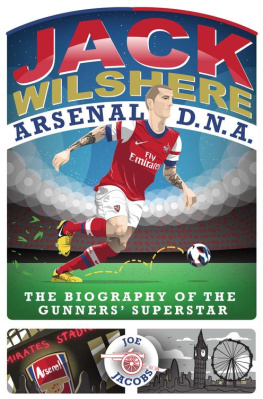Jacobs - When Your Song Breaks the Silence
Here you can read online Jacobs - When Your Song Breaks the Silence full text of the book (entire story) in english for free. Download pdf and epub, get meaning, cover and reviews about this ebook. year: 2012, genre: Detective and thriller. Description of the work, (preface) as well as reviews are available. Best literature library LitArk.com created for fans of good reading and offers a wide selection of genres:
Romance novel
Science fiction
Adventure
Detective
Science
History
Home and family
Prose
Art
Politics
Computer
Non-fiction
Religion
Business
Children
Humor
Choose a favorite category and find really read worthwhile books. Enjoy immersion in the world of imagination, feel the emotions of the characters or learn something new for yourself, make an fascinating discovery.
- Book:When Your Song Breaks the Silence
- Author:
- Genre:
- Year:2012
- Rating:4 / 5
- Favourites:Add to favourites
- Your mark:
- 80
- 1
- 2
- 3
- 4
- 5
When Your Song Breaks the Silence: summary, description and annotation
We offer to read an annotation, description, summary or preface (depends on what the author of the book "When Your Song Breaks the Silence" wrote himself). If you haven't found the necessary information about the book — write in the comments, we will try to find it.
When Your Song Breaks the Silence — read online for free the complete book (whole text) full work
Below is the text of the book, divided by pages. System saving the place of the last page read, allows you to conveniently read the book "When Your Song Breaks the Silence" online for free, without having to search again every time where you left off. Put a bookmark, and you can go to the page where you finished reading at any time.
Font size:
Interval:
Bookmark:
When Your Song Breaks the Silence
Natalie Jacobs
When Your Song Breaks the Silence
Natalie Jacobs
Copyright 2012 by Stanley and JudithJacobs
Kindle Edition
All rights reserved, including the right toreproduce this work in any form.
In memory of Natalie
Contents
Patterns
(and what is music, really,but the patterns that sounds make in their passage through time? that was whathe heard, all his life; the patterns, the sounds, and time which is the silencethat surrounds them.)
He is making what he hears into structures that he can understand: thesound of his mother's voice, the tread of his father's feet; the intricatemelodies of words. Sounds beat down on him relentlessly, sometimes terrifying,sometimes soothing, but always present, even in the quietest room. He imagineshe can hear the sounds that the grass in the courtyard makes as it grows.
Franzl, put your hand there. Can you feel the baby kicking?
Oh, yes.
His mother smells a little of soap, the fatty-smelling stuff she brewsin the kitchen, and a little of the powder she sometimes dusts on her face andhair, which comes off on his lips when he kisses her cheek. She says that greatladies cover themselves in powder, and they used to wear wigs as big as houses,all gray with powder. When she first came to Vienna she saw the great ladies inthe streets, in their coaches. But that was before Napoleon's war.
Will it be a boy or a girl?
Only God knows that, little bird.
If he presses his ear to the curve of her belly, he can hear the thumpsthe baby makes when it kicks, getting ready to be born. He wonders if the baby,too, can hear the patterns that sounds make. He was there too, where the babyis, a long time agohis mother told him so. What did he hear in thatplace behind his mother's skin?
He comes to realize that sound is a language that he must learn in thesame way that he must learn to read. These patterns mean something, they havesecrets inside them. He is starting to understand. And meanwhile the patternsare everywhere: in the sounds of the priest giving Mass, in the sounds of hisbrother Ignaz practicing the piano, in the sounds of his mother's murmuredwords of comfort after he wakes from a nightmare.
Shhh, Vgelein. Geh' zu ruhe. Go to sleep, love.
I can't.
In the darkness of his brothers' room: the half-opened door, the darkshape of his mother above him, and further back, silhouetted, his father in hisdressing gown. His mother's belly under her nightgown is huge now, and solid.During the day she wears stays to make it smaller. Inside her belly is a secret.
As he listens for the patterns, he finds the world around him beginningto fade. Everything is blurry. He cannot tell his brothers apart at a distance;his mother's features meld into a single blankness until she leans down; hisfather is only a large indistinct mass. Somehow, for some reason, when theworld loses its clear edges, he begins to hear more.
Behind the wall, his mother is screaming.
He curls up in bed and puts his hands over his ears, but he can hear itanyway. Soon you will have a new little brother, said the lady who came to thehouse. He had seen her before, last year. His baby sister had lived one day.Her body looked like a wax doll in its little blanket. His father said she wasin Heaven, which he didn't understand, because she was right here.
He can't stop listening. Even the screaming seems to make sense, itseems to have a pattern to it. It comes and goes in a rhythm, rising and risingand then falling again. He can beat time to it. He can hardly believe that heis hearing this. It must be a sin of some kind. His father says he is too youngto sin.
The baby is a girl. Her name is Maria Therese. His mother calls herResi. She is pink and has black hair. His father has her baptized right away.Everyone gets very excited about her, even his brothers. He doesn't know whatto think, except that his baby sister is ugly. Maybe she'll die too.
Her crying at night is a new pattern. He weaves it into the otherpatterns. He hopes it'll go away because it makes the other sounds ugly. But itdoesn't go away.
He likes to hide under his bed in the evening after dinner and lie onhis tummy and play mumbledy-peg with his brother Ferdinand's penknife. Hismother and father never know he's there. Under his bed it is dusty and there isa spider that lives there, which is brown with white spots. The knife makes athunk-thunk-thunk in the wood. He can hear all the sounds of the housevibrating through the floorboards: his father's voice below him, big and deep,Ferdinand complaining about something and his mother replying, and then theshrill hurting sound of the baby.
Stupid baby. It's been a long time since she was born but everyone stillthinks she's wonderful. And his mother doesn't call him her little birdanymore.
Ignaz finds him there, on a night when the house is more full of noisesthan ever, and all he wants is to make everything go away. Ignaz is his oldestbrother. He's twelve and has a hunched back because he was bornwrongthough once their father was angry and said Ignaz had a hunched backbecause he was a "bastard boy." He is tall and so his face is alwaysblurry, because it's so far away. But when he's peeking under the bed, his faceis clear. His voice has a funny sound to it, like a frog.
Do you want to hear me practice? Come on, let's go to the music room.And stop sulking, will you?
Everyone always says he's sulking. Even when he's not.
In the music room, where the drapes are always drawn, Ignaz sits andplays the piano while Franz listens. The piano is a great dark shining thing,like a whale, heaped up with books and papers. The sounds it makes are the bestsounds because (he is learning this) they are there on purpose. All sounds meansomething but these are put together that way in order to mean a certain thing.When Ignaz plays, he takes the sounds that are on the paper and makes themreal.
Sound can be written down like words. Once Ignaz let him look at some ofthe writing. Lines and squiggles and circles and spiky things: they didn't lookthe way the music sounded. Ignaz says that you have to write down sounds sopeople can make them again later.
Just like people write down stories, so they can tell them again later.Like the story of the man on the desert island, do you remember that? Well, youwouldn't know about that story unless someone had written it down.
He chews on his nails while Ignaz plays music by a person named W.A.Mozart. W.A. Mozart is dead now, Ignaz told him.
Do you like this? Do you like this music?
Every sound has a meaning and creates a pattern but these sounds thatIgnaz plays are a language more difficult to understand. They tell astorynot like the man on the desert island but a story with no words andwith no people in it either, but it's still a story. It has a beginning, amiddle, and an end. Some of the pieces his brother plays have happy endings andsome of them have sad endings. But all of themhe doesn't know how to sayitall of them have things inside them. They aren't just sounds. Thepatterns are like spider webs that capture all sorts of thingsfeelingsand thoughts and sometimes pictures, too.
When he listens to the music by W.A. Mozart, he sees people dancing andbirds flying and remembers a trip to the park when he played with a little dogand threw stones in a fountain. And then he sees all the sounds flyingaroundthey look like little silver thingsand joining together.They draw shining lines in the dark behind his eyelids.
Listening to this music is the best thing in the world. Better thansweets, even.
His birthday is in the winter. His mother says he was born during thefirst part of the war, only a little while before the army marched off to meetNapoleon, and everyone waved out the windows and cheered, and his mother heldhim up to see the parade. He doesn't remember any parade. Sometimes, though, hedreams about being born and coming out into white light and snow fallingoutside the windows. Maybe it's a true dream.
Font size:
Interval:
Bookmark:
Similar books «When Your Song Breaks the Silence»
Look at similar books to When Your Song Breaks the Silence. We have selected literature similar in name and meaning in the hope of providing readers with more options to find new, interesting, not yet read works.
Discussion, reviews of the book When Your Song Breaks the Silence and just readers' own opinions. Leave your comments, write what you think about the work, its meaning or the main characters. Specify what exactly you liked and what you didn't like, and why you think so.













